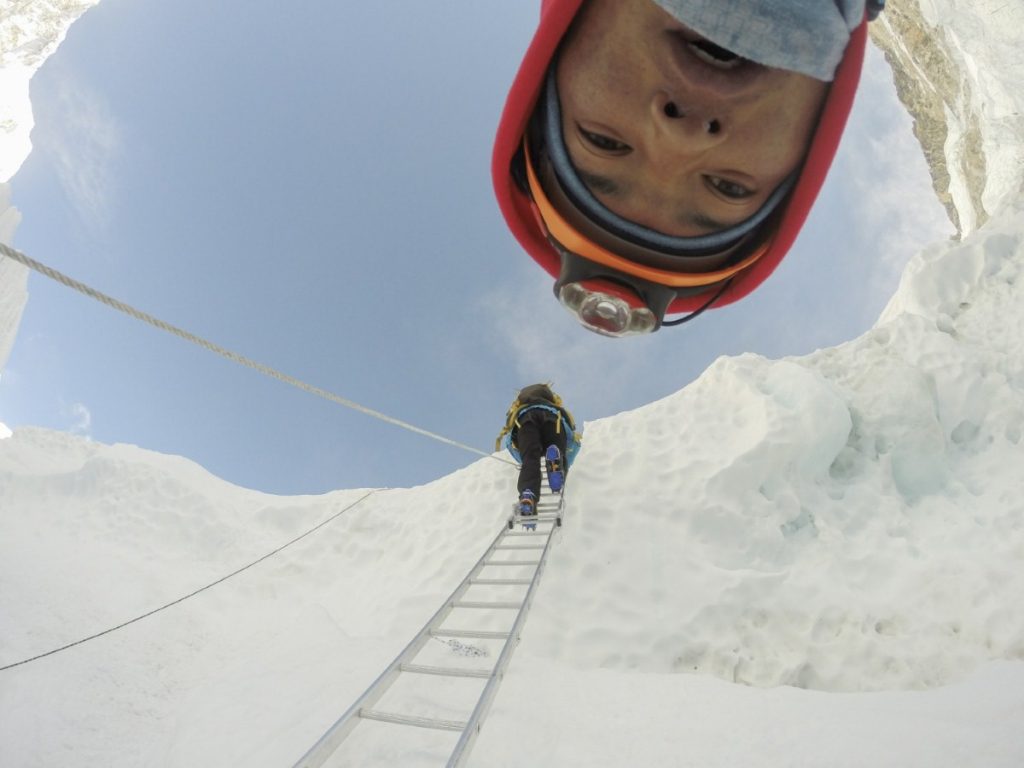Class war on Everest: The Sherpa rebellion for better working conditions
The crucial moment of the film Sherpa comes not from the mouths of the Sherpas themselves but a western climber sitting in Everest Base Camp.
A strike of sorts has kicked off following the death of 16 Sherpas in an avalanche. As the film shows, the Sherpas had been heading up the mountain at night to lay equipment for the western climbers when the avalanche strikes. In the fraught and emotional days that follow, the remaining Sherpas at Base Camp refuse to keep doing journeys up Everest until there is an improvement in their working conditions.
A western tour leader is forced to tell his customers, many of whom have paid tens of thousands of dollars, that their trip will not be going ahead. It's at this point that one of them asks whether they can't just contact the Sherpas' "owners" to force them to work.


In the cinema I was in, that comment earned a gasp from the audience. It seemed an outright, if accidental, admission that some westerners on the mountain did not see Sherpas as free workers lending their skill and physical abilities to climbers, but as a slave class tasked with serving them. Even less did they recognise the deep spiritual and historic relationship the Sherpa have with Everest.
This is class war at 5,364 metres. Or at least, that's what it looks like to me: a classic industrial dispute about working conditions, set against a beautiful and perilous backdrop. But for the film makers, the idea is not to tell the viewers what to think, but present them with the full gamut of views on that heated debate on Everest.
"It wasn't our job to comment," producer John Smithson says from London, where the film is tipped to pick up a Bafta award later this month. "You take from it what you will. We chose to have all those voices, from Sherpas to western clients. We laid it out there to show all the complexities of the issues."
The class issues were already on Everest before the avalanche. The year before, a dispute between climbers and Sherpas had descended into a brawl after one had used the word "motherfucker" on the mountain, much to the Sherpas' outrage and dismay. But it’s not just class. At the heart of many of these disputes is the question of how to treat Everest.

If you want westerners to be able to climb, they will need help from the Sherpas, who go ahead of them placing equipment and food on the route. Unfortunately, that route includes the Khumbu Icefall, a perilous section which can't be avoided. Westerners brave it twice – once on the way up, and again on the way down. Sherpas brave it countless times a season, as they lay the ground for the westerners coming after them. You could helicopter up the supplies to avoid this, but some object that doing so would turn Everest into Disneyland, a place with no authenticity or serenity. As things stand, the Nepalese government agrees.
"Lots of the best mountaineers and climbers already regard Everest as a circus and don't want to go there," Smithson says. "The background to that fracas in 2013 was that those guys were proper serious climbers, saying to the Sherpas 'we'll climb this how we want'. The Sherpas were saying they wanted to lay the ropes for climbers, as that's their job."
The fight crystallised in the film-makers' minds that there was a story to tell on Everest, one about class and race and the purpose of mountaineering. But even they could not have imagined the disaster which was to befall them when they got to Base Camp and the avalanche killed so many people. What follows is documentary film-making at its best: a crew in the right place at the right time, capturing a moment which symbolises sweeping political themes.
"Base camp Everest became a microcosm of so many different things and the disaster acted as a catalyst to bring those issues to the surface," Smithson says.
"In 2014, when the team gathered on Everest, we knew that relationship was one we wanted to explore. We wanted the perspective of the Sherpas and the organisers who facilitate Westerners on Everest and the view of people who pay their money to climb.
"We were interested to track all that complex web of relationships – the complex political, nationalistic, cultural and economic backdrop to it. But we knew those things would come out in the telling of the story. They would come out naturally and not in a preachy way. When the avalanche happened, there was huge emotion and that morphed into anger and resentment. It blew into the open the relationships we were seeking to examine."
One year afterwards, the Nepalese earthquake made Base Camp a death zone, killing westerner and Sherpa alike. For the second year in a row, no-one climbed Everest. This summer, when climbing season starts again, we will find out if the Sherpa strike has truly improved working conditions on the mountain.
Sherpa has been nominated for best documentary in this month's Baftas, alongside Amy, Cartel Land, He Named Me Malala and Listen To Me Marlon.

